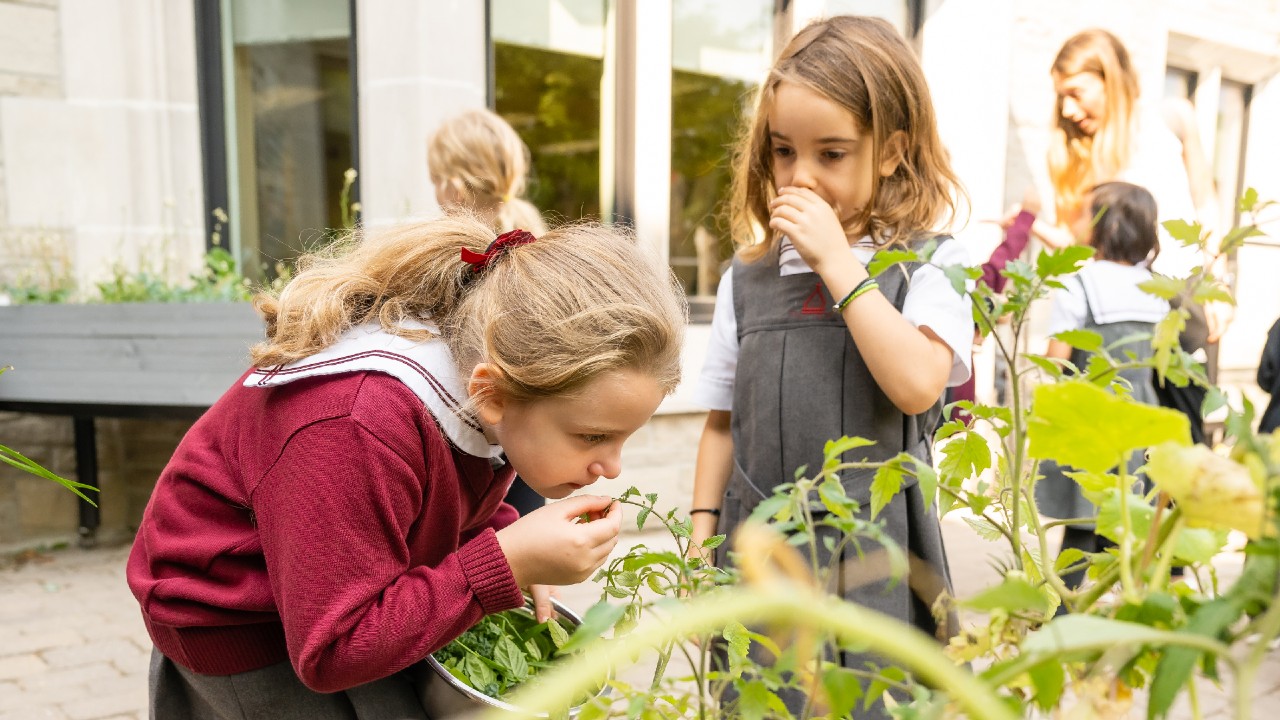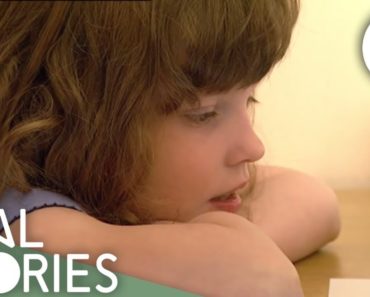The student-centred approach is shaping the lives of children by challenging them and fostering their curiosity.
Every month, the first grade students at The Bishop Strachan School (BSS) head to a local ravine. Last year they were joined by an Anishinaabe member of the BSS community, to explore the natural space in small groups.
“They don’t just learn about the ravine or about Indigenous ways of knowing, they also develop a relationship with this natural space through multiple seasons,” explains Amanda Humphreys and Jessie Sawyers, both grade one teachers at BSS. “From this experience, students investigated big ideas of transformation, structure and self-awareness and felt empowered to learn more from nature.”
Making connections through experiences
This isn’t just an example of experiential learning; it’s also a perfect illustration of the Reggio Emilia approach to education. This teaching philosophy was developed in the 1950s by Italian early childhood educator Loris Malaguzzi and parents from the villages surrounding the northern Italian city of Reggio Emilia.
The key to this approach is that it’s student-centred—educators who are inspired by this approach, including those at BSS, recognize that children have “a hundred languages” beyond just oral or written communication that they can use to communicate their thoughts, feelings and ideas, and focus on introducing these languages, to help them explain their thinking.
“The Reggio Emilia approach is a deeply responsive practice that connects us to the experiences and ideas of the children, as well as the world we live in” Catherine Hant, principal of the junior school explains. “When children feel they are connected to the world, content or subject matter and are immersed in environments that honour their voice, they are more likely to challenge their thinking and take risks.”
For example, grade ones immersed themselves in ravine explorations last year. After developing a curiosity for worms and their habitats, and an understanding of the optimal conditions under which worms thrive within a larger ecosystem, students were motivated to write, research and present their findings on how worms would survive back at school in the vermicomposter.
As scientists, they recorded observations and questions, and researched how to take care of the vermicomposter. They designed experiments to see what food the worms preferred and discussed how the worms transformed paper and bananas into soil. These outcomes in writing and science went far beyond grade level expectations and are examples of how engaged learning can challenge and stretch student learning.
The Reggio Emilia approach positions students as “active protagonists of their own growth and developmental processes,” as the Ontario Reggio Association puts it, with teachers and even parents as their ‘co-researchers,’ who help them inquire about the world around them.
“We strive to include parents and teachers in many ways such as co-researchers, learning alongside our students,” says Hant. “We don’t provide all the answers but encourage opportunities to build together a life-long relationship to learning, and uncover and discover new ways of seeing the world together. Knowledge acquisition, extraction and consumption aren’t the goal—the goal is to deepen relation and connection to the world, and this is something that is possible and necessary at all ages and stages of life.”

First graders, Zoë and Georgia.
Taking an active role in learning
The result is a very flexible curriculum that is driven by the student’s interests. That’s why open-ended and long-term projects, like the monthly ravine visits, are such an important part of this approach.
“A great deal of intentionality is given to the structure of each day, allowing ample time and space for children to delve deeply into investigations and projects. Experiences are curated in attempts to broaden and expand ideas beyond fact finding,” Hant says.
The effect this type of education has on young students is profound; a 2018 study in Research in Economics found that, compared to children who didn’t receive any formal early childhood education, the Reggio approach “significantly boosts outcomes related to employment, socio-emotional skills, high school graduation and participation in elections.”
Even more convincing though, is how engaged the first-graders are during and after a visit to the ravine.
“They felt compelled to share their new understandings with the whole Junior School community in an assembly, and some of our students created a plant guide to help community members navigate edible plants within our ravine systems,” explains Rachel Hughes, vice principal of the junior school at BSS. “It’s clear this experience fostered curiosity and the desire to understand the world around them, and to take an active role to make a difference in the world.”
To learn more about The Bishop Strachan School, click here.

































